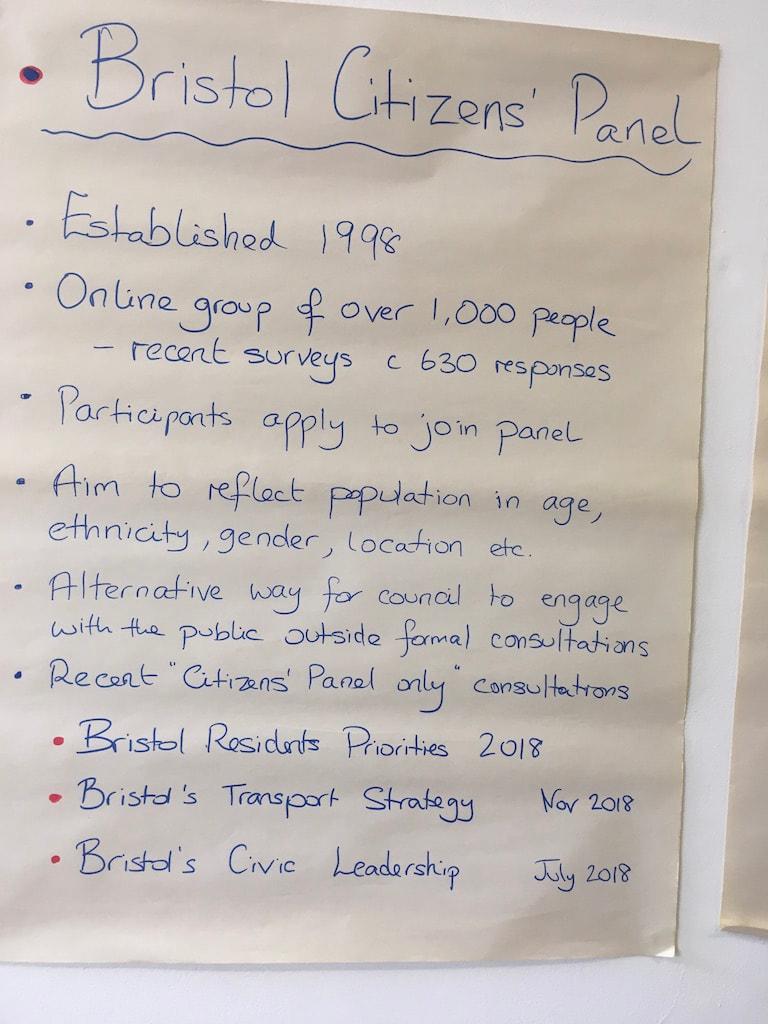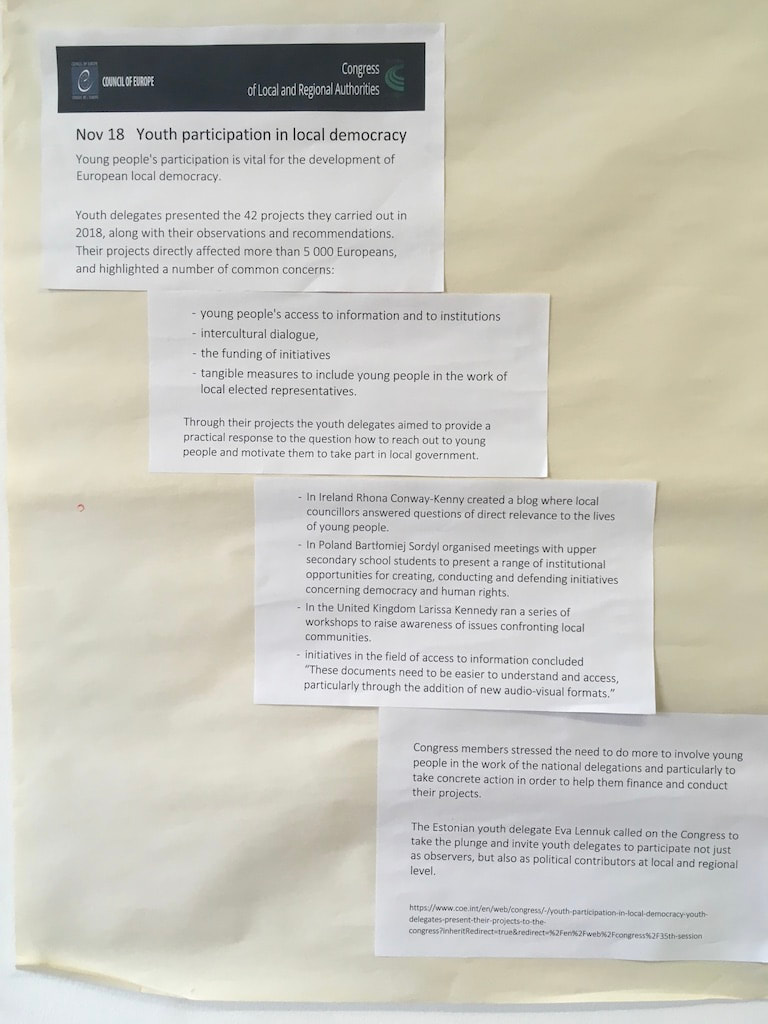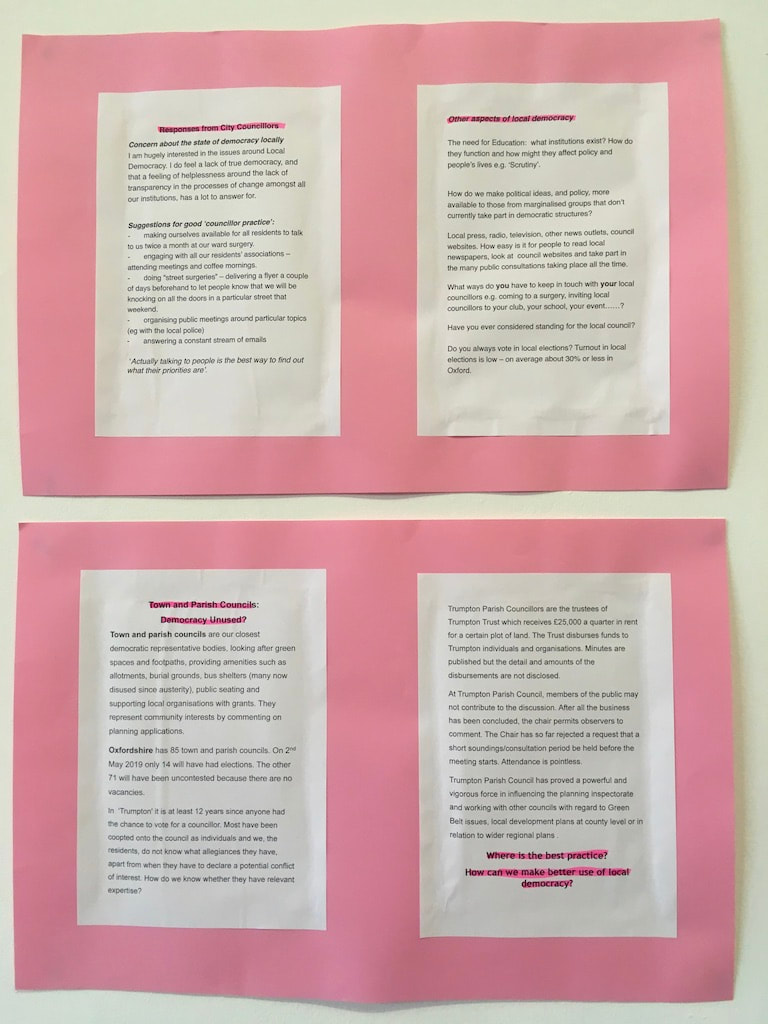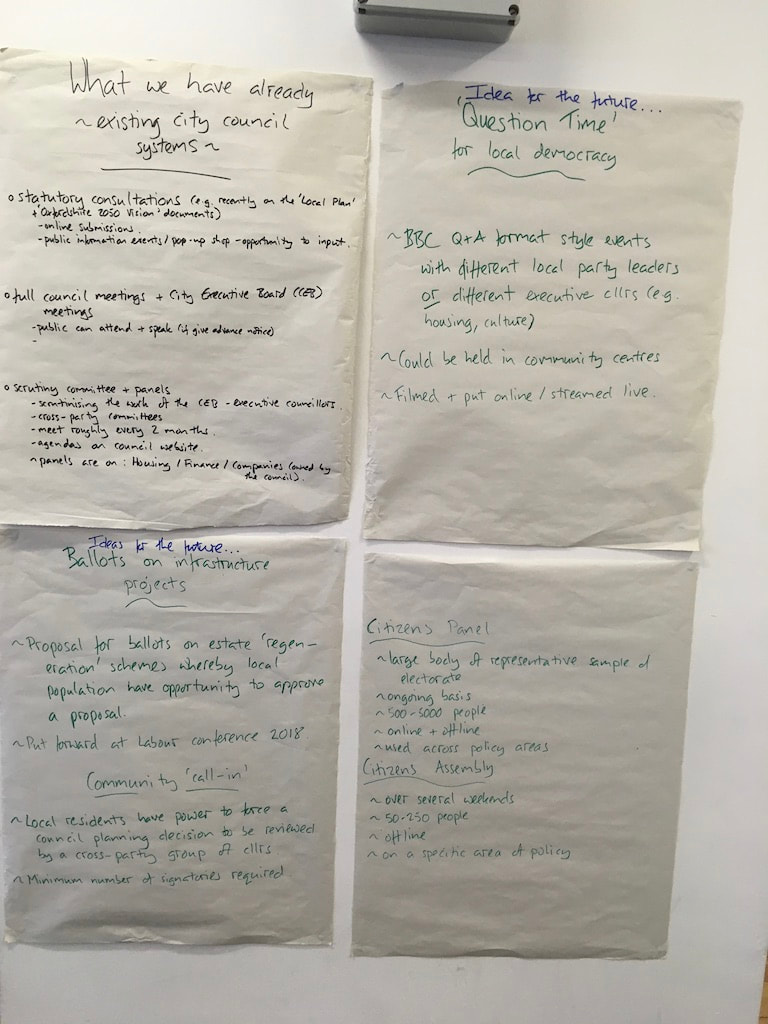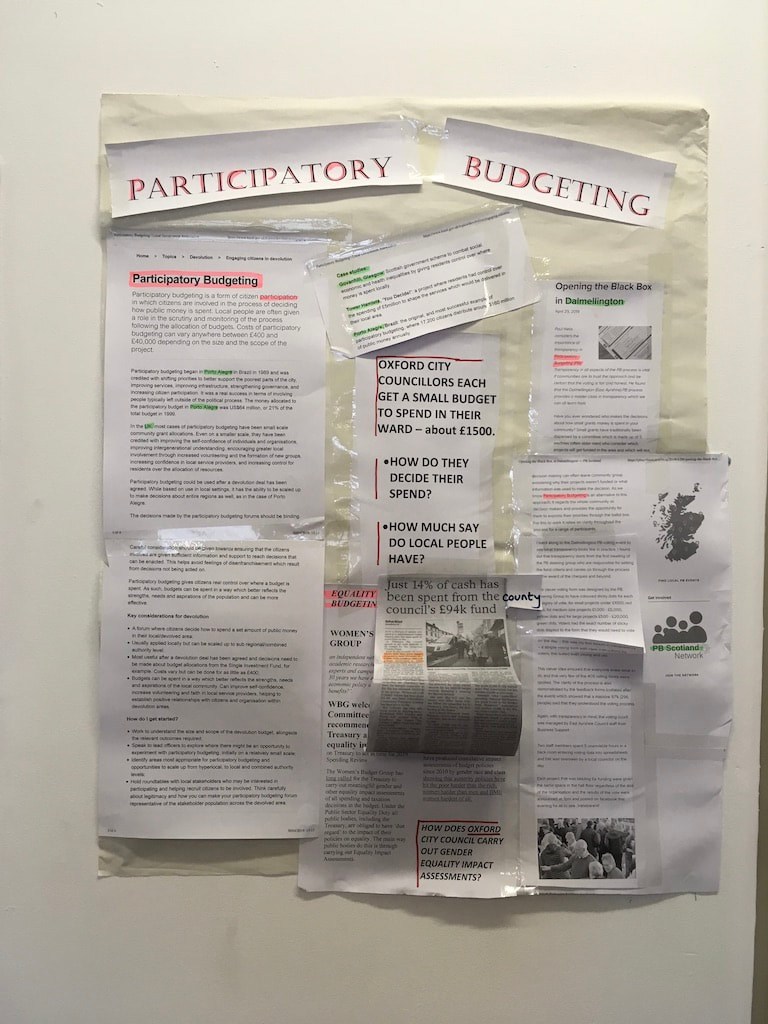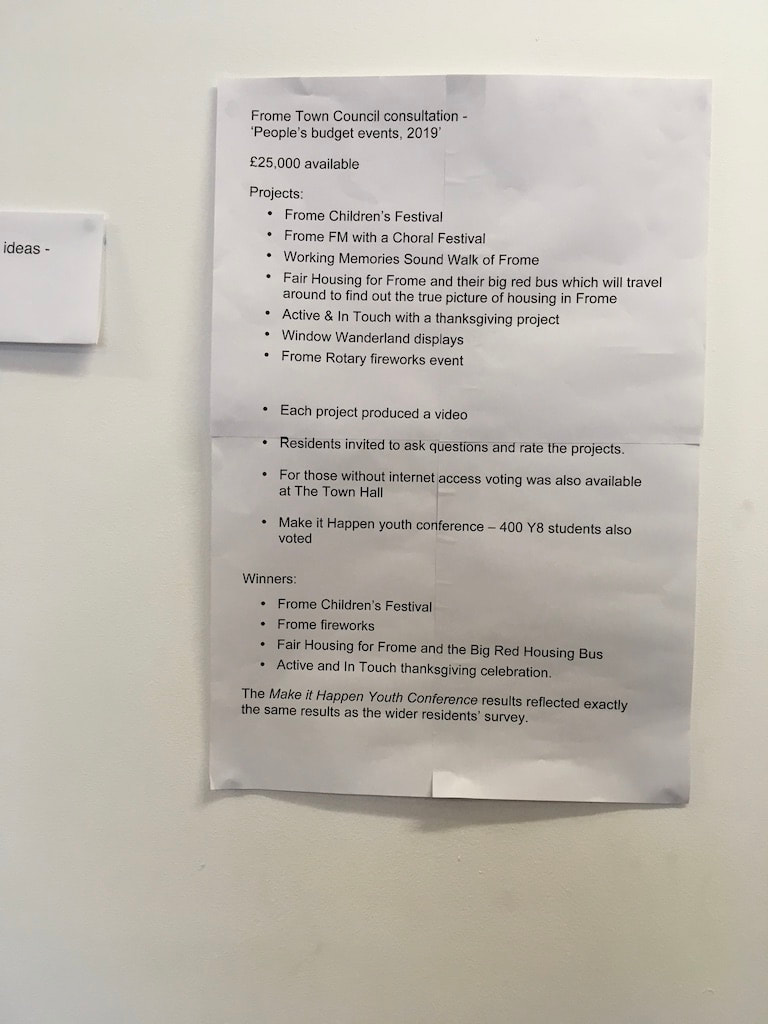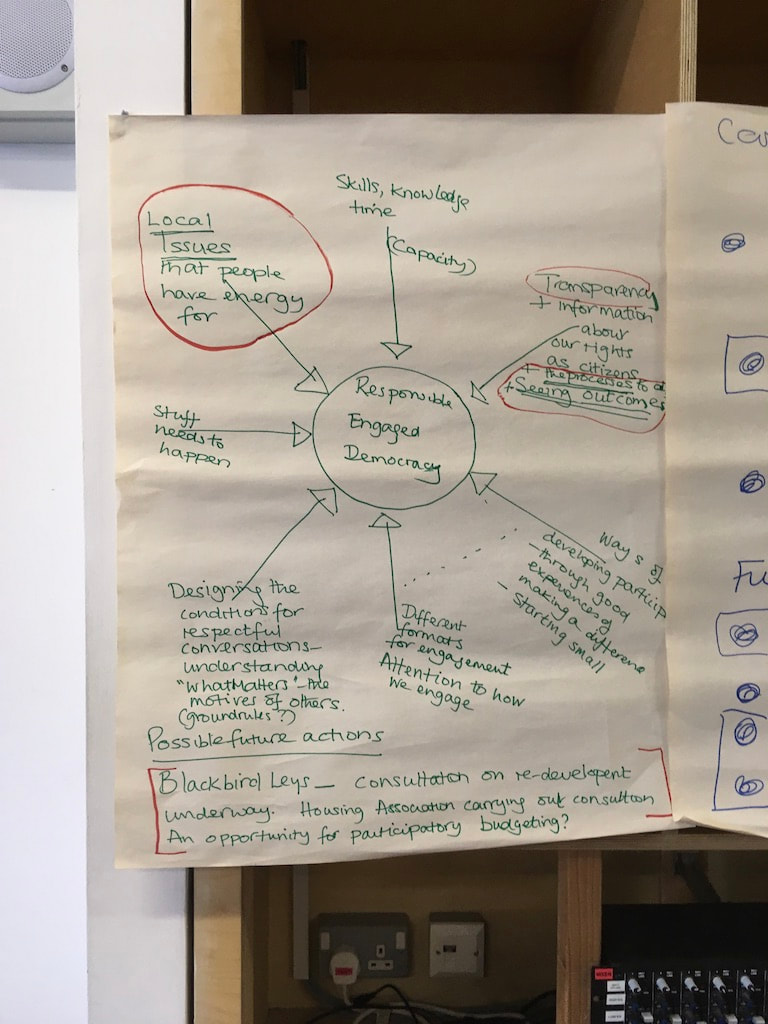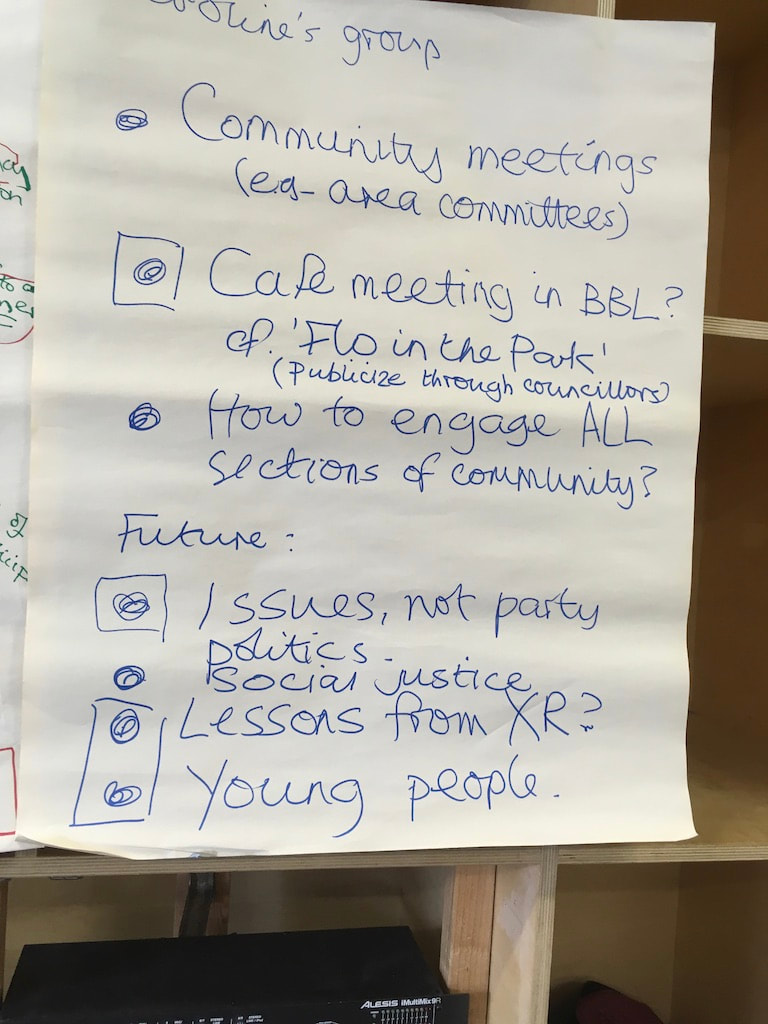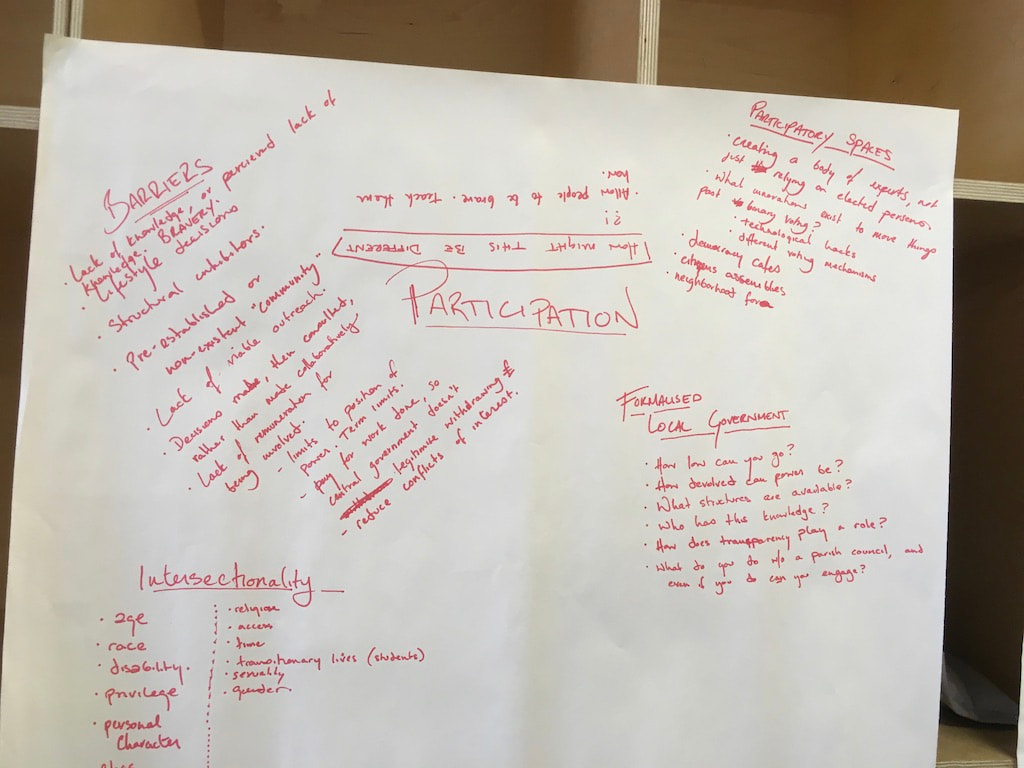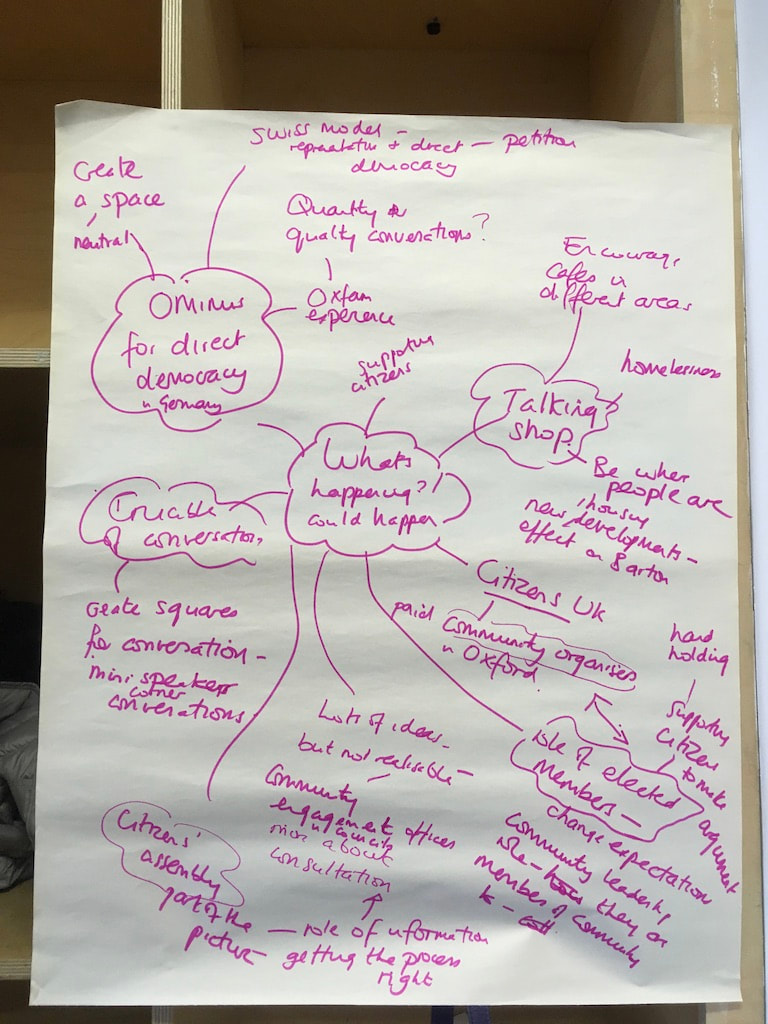Report of the meeting, and summary of small group discussions.
Continuing our concerns about our current democratic political systems, and to chime with the May local elections, our topic was Local Democracy. We had invited all the city councillors to come along, and three did so. Several others responded with comments and suggestions. These were written up onto posters around the room, plus additional posters on issues relating to local democracy:
Bristol Citizens Panel, Youth Participation in Local Democracy, Participatory Budgeting and Women’s Budgeting, Frome People’s Budgeting, Initiatives in Scotland, The future of Local Democracy, Town and Parish Councils: Democracy Unused? [see pix of posters]
In small groups the discussions centred on three questions about how can local democracy become more participatory?: [see pix of flipcharts]
Continuing our concerns about our current democratic political systems, and to chime with the May local elections, our topic was Local Democracy. We had invited all the city councillors to come along, and three did so. Several others responded with comments and suggestions. These were written up onto posters around the room, plus additional posters on issues relating to local democracy:
Bristol Citizens Panel, Youth Participation in Local Democracy, Participatory Budgeting and Women’s Budgeting, Frome People’s Budgeting, Initiatives in Scotland, The future of Local Democracy, Town and Parish Councils: Democracy Unused? [see pix of posters]
In small groups the discussions centred on three questions about how can local democracy become more participatory?: [see pix of flipcharts]
- What is happening locally?
- How do we engage all sections of the community?
- What ideas do we have for the future?
What is happening locally?
Engaging all sections of the community
This was where much of the ODC energy was concentrated, with proposals such as:
- The ODC and its offshoot, OxCAN (Oxford Citizens Assembly Network) were held up as examples of places for informal discussion outside electoral systems.
- Parish councils were held up as the electoral bodies nearest to us as citizens, but with much criticism - lack of transparency, even secrecy, difficulties in finding out about them, how they work, who candidates are, how to engage, their budgeting, unwillingness to share power.
- Community engagement officers in Oxford, but these were more about consultation in the traditional sense of telling; top down rather than democracy equalised through discussion.
- Councillors asking rather than telling their constituents what they wanted, especially how to spend their ward budgets.
Engaging all sections of the community
This was where much of the ODC energy was concentrated, with proposals such as:
- Participatory spaces; the creation of ‘squares’ such as in Germany for ‘respectful’ conversations
- Be where people are – housing, new developments such as Barton and its effects
- Ensure transparency; information about our rights as citizens, visible outcomes
- Intersectionality – pay attention to age, race, dis-ability, privilege, class, in order to ensure inclusivity
- Encourage and empower people to ‘be brave’ by helping/teaching how to speak up, how to find out, to challenge those who say ‘I know how it works’.
- Emphasise the importance of knowing people care.
These then led to lots of proposals for the future:
At the plenary report back session we were updated by OxCAN on developing a Citizens’ Assembly together with Oxford City Council on ways and means of implementing its unanimous resolution on Climate Emergency. This will be Oxford’s first ever citizens’ assembly on climate change. OxCAN is now separate from but allied with ODC, and together they will support a representative on the City Council’s Advisory Group.
- Join with existing initiatives such as Blackbird Leys consultation on new housing
- Encourage Democracy Cafes in other parts of Oxford, eg Florence Park
- Encourage/ask more councillors to find out from the local people what they should spend their ward budgets on; and what was possible or not already in the pipeline.
- Take a lead from XR [extinction rebellion] methods, and especially young people, on climate catastrophe
- Start small
- Speakers corners
- Area committees - Revive and reform
At the plenary report back session we were updated by OxCAN on developing a Citizens’ Assembly together with Oxford City Council on ways and means of implementing its unanimous resolution on Climate Emergency. This will be Oxford’s first ever citizens’ assembly on climate change. OxCAN is now separate from but allied with ODC, and together they will support a representative on the City Council’s Advisory Group.

